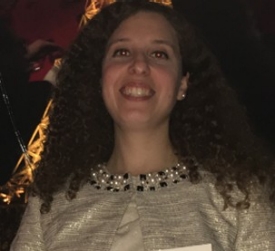How are you applying your degree in Economics from Concordia?
My PhD research in the field of financial economics and applied econometrics provided me with an in-depth knowledge of econometrics and a thorough application of various concepts used in financial economics. My research provided me with greater expertise in economics and financial economics and allowed me to continue researching and teaching on several interrelated themes.
As an example, I was able to teach courses related to finance such as in banking and financial institutions, and capital markets. Moreover, my empirical research skills were very helpful to tackle the industrial organization research track, in which I am currently writing two papers.
What do you value most from your Economics experience?
In addition to acquiring a solid academic background in economics and a practical research and teaching experience from teaching several courses at Concordia, I mostly value the opportunity of having the chance to meet and learn from Concordia University’s renowned professors and researchers in the Department of Economics, particularly Professor Bryan Campbell, my thesis supervisor. Prof. Campbell was abundantly helpful and his assistance, comments and guidance were invaluable. I’m also thankful to him for giving me the opportunity to present the first essay of my PhD thesis at the Center for Interuniversity Research and Analysis of Organizations (CIRANO).
I also felt privileged to take the Game Theory course with Professor Szilvia Papai. Professor Papai was easily approachable, knowledgeable and her explanations of this difficult topic were very clear. Her course was well-organized and her method was very interesting. I would also like to mention Professor Greg LeBlanc, the Department of Economics’ chairperson and Professor Faye Diamantoudi, my then Graduate Program Director for their continuous help and guidance as they were always willing to advise me and help me decide on my future career track.
Is there a particular memory that stands out from your time at Concordia?
I particularly remember my online teaching experience at Concordia. For the first time, I was selected to teach the online tutorials for the Introduction to Microeconomics and Introduction to Macroeconomics courses and it was a very good experience.
I was very happy to record these online tutorials especially because universities worldwide started to use blended learning and online teaching techniques. Having this experience prior to my graduation was a great added value for me when applying for an academic job because it exposed me to superior communication skills and helped me develop better presentation techniques.
What advice would you give to someone considering graduate studies in Economics?
The decision to pursue graduate studies in economics is a decision that offers several possible career tracks. First, PhD graduates can be engaged in academic jobs, including research work for papers published in academic journals. Then, unlike many other disciplines, there are non-academic opportunities available for economists as well with large corporations, consulting firms and government agencies.
My advice is to acquire a few years of work experience in an economics-related job and then choose the appropriate graduate program that meets your future career needs and expectations.

